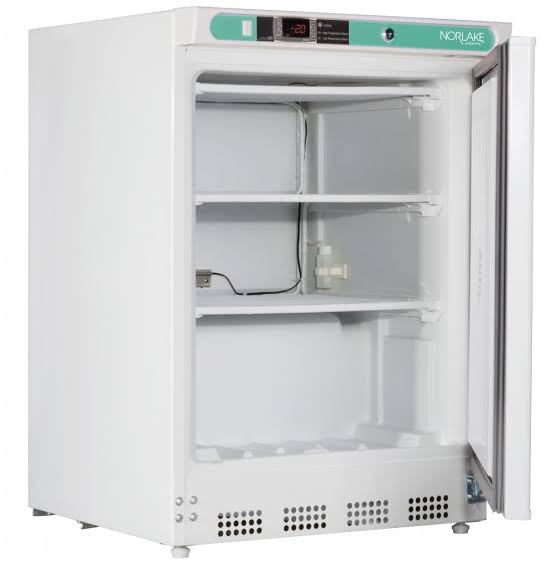Selecting the right lab freezer for sensitive pharmaceutical storage is crucial to ensuring the integrity and efficacy of medications, vaccines, and other pharmaceutical products. The storage conditions for pharmaceuticals can directly impact their stability and effectiveness, making it imperative to invest in a freezer that meets the stringent requirements of the industry. This comprehensive guide will help you navigate the various factors to consider when choosing a lab freezer, including temperature control, capacity, reliability, and additional features. We’ll also discuss the role of ice boxes for medicine in maintaining optimal storage conditions during transportation or temporary storage.
Understanding the Importance of Proper Pharmaceutical Storage
Pharmaceuticals are highly sensitive to temperature fluctuations. Improper storage can lead to degradation, reduced potency, and potential safety risks. For instance, vaccines and biologics often require storage at ultra-low temperatures, while other medications may need consistent refrigeration. Ensuring these products are stored under optimal conditions helps maintain their effectiveness and extends their shelf life.
Key Considerations When Choosing a Lab Freezer
- Temperature Range and Control
- Specific Temperature Requirements: Different pharmaceuticals have unique storage requirements. Some may need ultra-low temperatures (-80°C), while others are stable at standard freezer temperatures (-20°C). Ensure the freezer can achieve and maintain the required temperature range.
- Temperature Stability: Consistent temperature is crucial. Look for freezers with advanced cooling systems that minimize temperature fluctuations. Digital temperature controllers and alarms for deviations are essential features.
- Calibration and Validation: Regular calibration ensures the freezer maintains accurate temperatures. Choose a model with easy calibration processes and consider third-party validation to comply with regulatory standards.
- Capacity and Size
- Storage Volume: Assess your current and future storage needs. Freezers come in various sizes, from compact units for small labs to large, walk-in freezers for extensive storage.
- Internal Configuration: Adjustable shelves, drawers, and compartments help organize and maximize storage space. Ensure the freezer can accommodate different container sizes, including ice boxes for medicine during short-term storage.
- Reliability and Build Quality
- Durability: A robust and well-constructed freezer ensures longevity and minimal downtime. Look for models made from high-quality materials resistant to corrosion and wear.
- Brand Reputation and Warranty: Choose freezers from reputable manufacturers known for their reliable products and customer service. Comprehensive warranties and responsive support are crucial for addressing any issues promptly.
- Energy Efficiency
- Energy Consumption: Energy-efficient freezers reduce operational costs and environmental impact. Look for models with energy-saving features like high-efficiency compressors and improved insulation.
- Eco-Friendly Options: Consider freezers that use environmentally friendly refrigerants and have a lower global warming potential (GWP).
- Safety and Compliance
- Regulatory Standards: Ensure the freezer complies with industry standards such as GMP (Good Manufacturing Practice) and FDA (Food and Drug Administration) guidelines.
- Security Features: Lockable doors and access control systems help protect sensitive pharmaceuticals from unauthorized access.
- Additional Features
- Alarm Systems: High-quality freezers come with built-in alarms for temperature deviations, power failures, and door ajar conditions. Ensure these alarms are audible and can be connected to remote monitoring systems.
- Data Logging: Continuous temperature monitoring and data logging capabilities are essential for compliance and auditing. Look for freezers with integrated data loggers and the ability to export data for analysis.
- Defrost Mechanism: Automatic defrost systems prevent ice buildup without compromising temperature stability. However, manual defrost models may offer more consistent temperatures for ultra-sensitive products.
The Role of Ice Boxes for Medicine
While lab freezers are ideal for long-term storage, ice boxes for medicine play a crucial role during transportation and temporary storage. These portable containers are designed to maintain the cold chain, ensuring that pharmaceuticals remain at the required temperature until they reach their destination. Here’s how ice boxes for medicine can complement your lab freezer setup:
- Transportation: When transferring pharmaceuticals from one facility to another, ice boxes for medicine ensure that temperature-sensitive products remain stable. High-quality ice boxes with proper insulation and cooling packs can maintain the desired temperature for extended periods.
- Temporary Storage: During power outages or freezer maintenance, ice boxes for medicine provide a temporary storage solution to keep pharmaceuticals safe. Having a few ice boxes on hand can be a critical part of your emergency preparedness plan.
- Field Use: For medical professionals working in the field or remote locations, ice boxes for medicine allow safe transport and storage of vaccines, medications, and biological samples. Ensure that these boxes meet the specific temperature requirements and have sufficient cooling capacity.
Conclusion
Choosing the right lab freezer for sensitive pharmaceutical storage is a critical decision that impacts the safety, efficacy, and longevity of pharmaceutical products. By considering factors such as temperature control, capacity, reliability, energy efficiency, and compliance, you can ensure that your pharmaceuticals are stored under optimal conditions. Additionally, integrating ice boxes for medicine into your storage strategy provides a reliable solution for transportation and temporary storage needs.
Investing in a high-quality lab freezer and having complementary storage options like ice box for medicine helps maintain the integrity of your pharmaceutical products, ultimately ensuring that they remain safe and effective for end-users.



